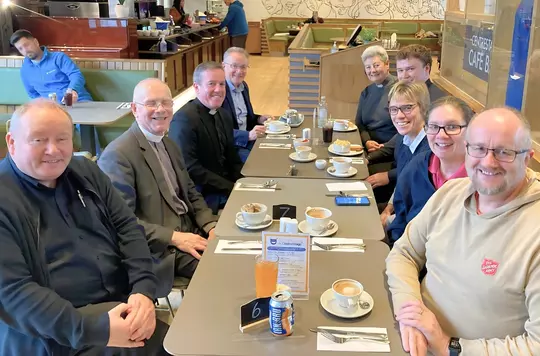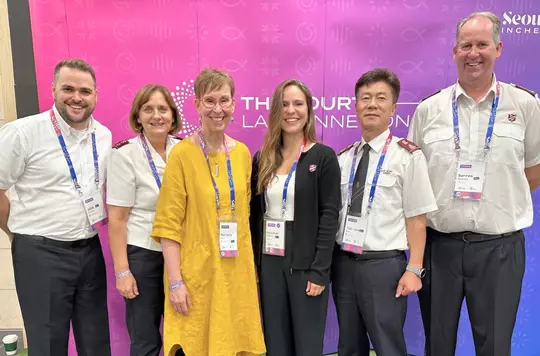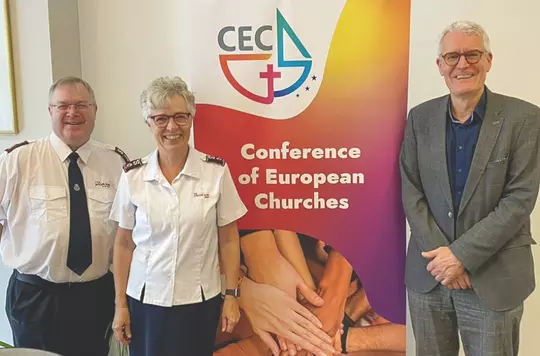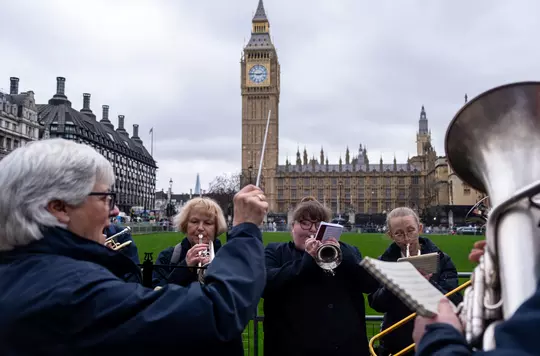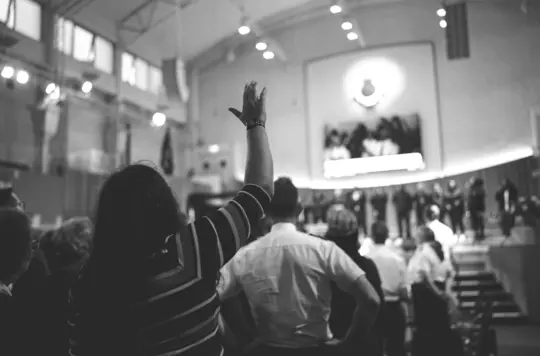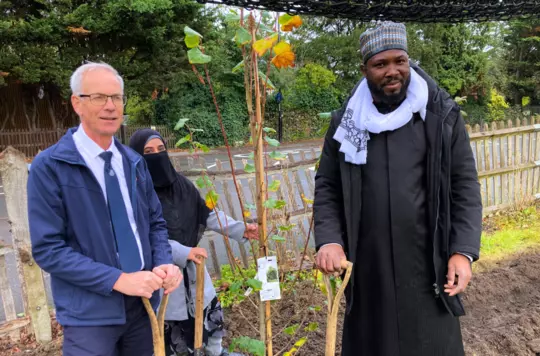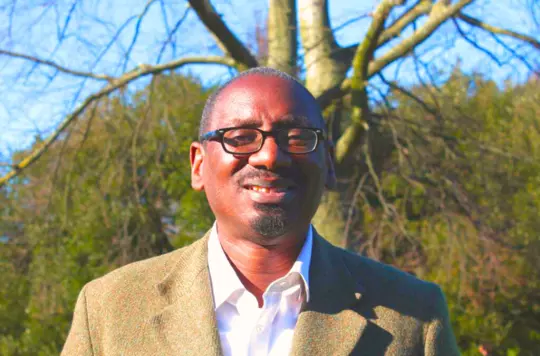20 January 2024
A palette of colours: A first-hand ecumenical experience
Captain Tracy Collis

Divisional Ecumenical Officer Captain Tracy Collis (Lancashire) reflects on a visit to a Romanian Orthodox church.
It was with a sense of the unknown that I drew up to a building that looked nothing like I expected a church to look. I had been invited with my fellow ecumenical representatives to share in the annual Advent Paraklesis service at a Romanian Orthodox church.
The plain exterior hid a beautifully decorated interior, with portraits of Jesus, Mary, disciples and saints. There were gold stands and ornate Bibles, which the worshippers bowed to and kissed as they entered. A gated entrance hid the entrance to the Holy of Holies and to the side was a four-sided lectern used for leading the service.
We were warmly welcomed by congregants preparing food and drink with smiles and hugs, which replaced a common language. Many women reverently had their heads covered and children in national dress were practising singing for the celebration of Great Union Day (1 December), the national day of Romania.
People were chatting and busying themselves getting ready for worship, but the laid-out chairs were mostly empty. We were called to worship with a swinging silver incense receptacle. There were no announcements, songbooks or PowerPoint slides, but a seamless hour of fast-paced sung liturgy by the two fathers and male attendants.
A few people sat in the chairs; most stood or knelt the entire time. Children played comfortably and worshippers sang purposefully, and the sign of the cross was used frequently, including touching the floor. The sense of spirituality was almost hypnotic. The barrier of language did not detract from the presence of God, as I was drawn into the worship. These were Christian disciples worshipping with all their hearts and it was a privilege to share such a sacred time and space.
As part of the celebrations, we were treated to the children singing some Romanian songs, before being invited to the traditional ‘fasting’ feast of Advent. As we were greeted with plates of fish, rice, polenta, garlicky and herby potato fishcakes, hummus and bread, one might wonder what a non-fasting feast consists of. This was my first delicious taste of Romanian cuisine – I passed, though, on the wine!
It was a truly memorable experience of Christian hospitality, where Jesus was evident in both actions and words. It was so far away from any Christian worship I had previously been part of, it left me with so many questions, yet it was truly time spent with Christian brothers and sisters.
I greatly admired the devotion and stamina of these Christians, who perhaps truly take to heart God’s command to ‘love the Lord your God with all your heart and with all your soul and with all your mind and with all your strength’ (Mark 12:30), having either stood or knelt for the entire service. This was closely followed with ‘love your neighbour as yourself’ (Mark 12:31) in their generous hospitality. There was a genuine desire to engender ecumenical understanding.
The universal Church may have many theological differences in its expression and interpretation of worship, yet at the heart of this – and all Christian worship – is our love towards God. Each differing expression of worship can give us a unique glimpse into the many differing facets of God’s character. A sung liturgical worship must surely delight God as much as communion, Quaker silence or Charismatic hand-lifting. Worship is a kaleidoscope of human expressions as individual as people, but each serves equally to draw us closer as disciples to our Creator.
What, then, does this mean for our ecumenical working relationships? We become much the richer in our relationship with God as disciples if we embrace the diversity of the universal Christian Church – and much the poorer, spiritually and missionally, if we limit our denominational vision to our own activities.
Ecumenical working must begin with a firm belief that the Church is not a one-dimensional, black-and-white drawing. It is a palette of colour that paints the whole picture of God to the world. It will, however, remain unfinished unless we dip the brush in all of his colours. The challenge for each of us is how to learn to paint ecumenically.
Written by
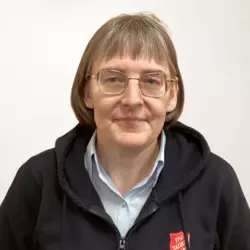
Captain Tracy Collis
Corps Officer, Carnforth and Morecambe
